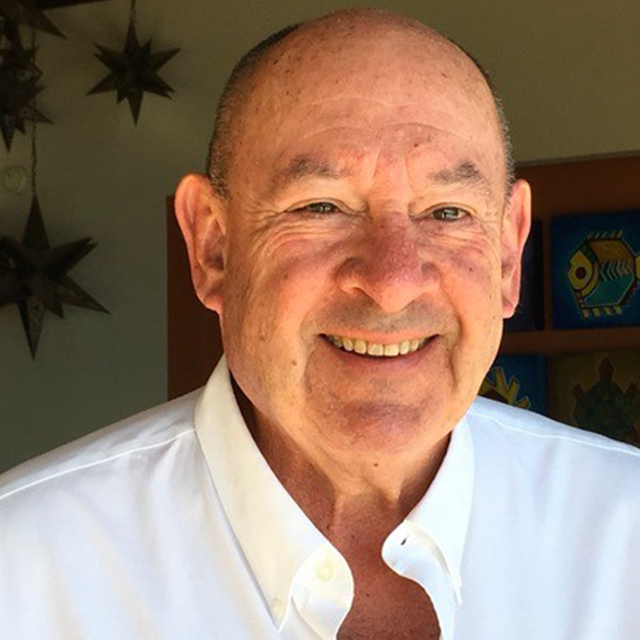Giving Back to His Roots
Johns Hopkins alum and orthopaedic surgeon Randy Davis dedicates part of his estate to fund an endowed lecture.

Orthopaedic surgeon Randy Davis created an endowed lecture for the Department of Orthopaedic Surgery as a gift from his estate.
Orthopaedic surgeon Randy Davis can trace many pivotal moments in his career back to Johns Hopkins. First, he graduated from the university’s accelerated B.A./M.D. program in the ’70s, an education he calls “unparalleled.” Then, he was a resident in the Department of Orthopaedic Surgery, seeing patients at The Johns Hopkins Hospital and conducting early-career research under pioneers in the field.
“There were a lot of fantastic clinical surgeons who were also very interested in research, which is a cornerstone, in my view, of what’s valuable about Hopkins,” Davis says. “It’s the combination of being good clinicians and good researchers who hopefully make some lasting impact on what we do.”
Davis, an associate professor of orthopaedics at Johns Hopkins, has decided to give back to his alma mater by creating an endowed lecture as a gift from his estate. He’s always enjoyed teaching, and hopes this lectureship will allow scholars outside Johns Hopkins to impart their knowledge to residents.
“From my first correspondence with Randy Davis, he’s been fully engaged and eager to help in any way,” says James Ficke, director of the Johns Hopkins Department of Orthopaedic Surgery and orthopaedist-in-chief at The Johns Hopkins Hospital. “He is an incredible partner.”
Davis has fond memories of previous orthopaedic surgery directors, including the late Robert Robinson and the late Lee Riley Jr., and he says Ficke has done a great job incorporating the larger orthopaedic surgery community into the department’s education and research efforts.
During medical school, Davis worked with orthopaedic surgeon Gerhard Schmeisser on projects involving orthotics and artificial limbs, in partnership with the Johns Hopkins Applied Physics Laboratory. After residency, Davis performed research for six months at Good Samaritan Hospital under the tutelage of orthopaedic surgeon David Hungerford, a pioneer in joint replacement. Hungerford was also chief of the arthritis surgery division at Johns Hopkins.
Davis performed several thousand surgeries — mostly spinal procedures as well as joint replacement surgery — at The Johns Hopkins Hospital from 1978 to 2005.
Now retired from surgery, the 71-year-old Davis maintains a practice in Severna Park, Maryland, where he sees patients for general orthopaedic problems and nonsurgical spinal care.
“It’s just me, so I do everything,” he says. “I think it kind of brings you back to your roots and keeps you humble.”
Endowing a lectureship is merely his latest gift to Johns Hopkins. Over the last decade, Davis has donated to the orthopaedic surgery department’s research lab at Johns Hopkins Bayview Medical Center and sponsored lectures for the department.
“I think if you receive something of value, it seems appropriate to give back to those who have contributed to your career, to your life,” Davis says. “And I feel that Hopkins has done that for me.”
To make a tax-deductible gift or to learn about the benefits of an estate intention or a charitable gift annuity that provides disbursements to you, please email Donna Clare at [email protected] or call 410-955-6936.
What will your legacy be?
An estate gift in 1873 from our founding benefactor, Johns Hopkins, created the American academic medicine model. The Johns Hopkins Legacy Society honors those who make their own legacy gifts to help secure the financial future of Johns Hopkins Medicine. To become a Legacy Society member, you may include Johns Hopkins in your estate plan, designate Johns Hopkins as a beneficiary of a retirement plan or life insurance policy, or give in a way that also provides income to you.
To learn more about these creative ways to donate, click here.
Related Reading
-
After Successful Shoulder Surgery, Grateful Patient Gives Big
Half of estate donated to support Edward McFarland’s research work.

-
After Great Treatment, He Sponsored a Nurse
The former investment management executive says his clinical experience was “tiptop,” and the nurse he had was “absolutely fabulous.”

